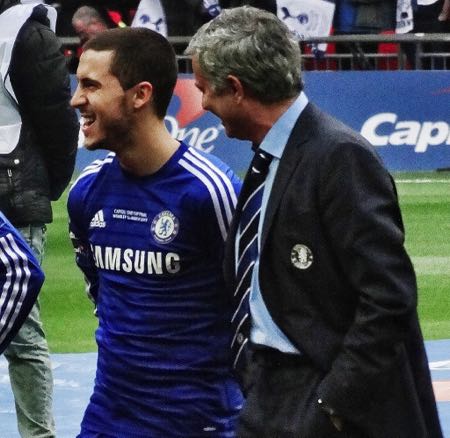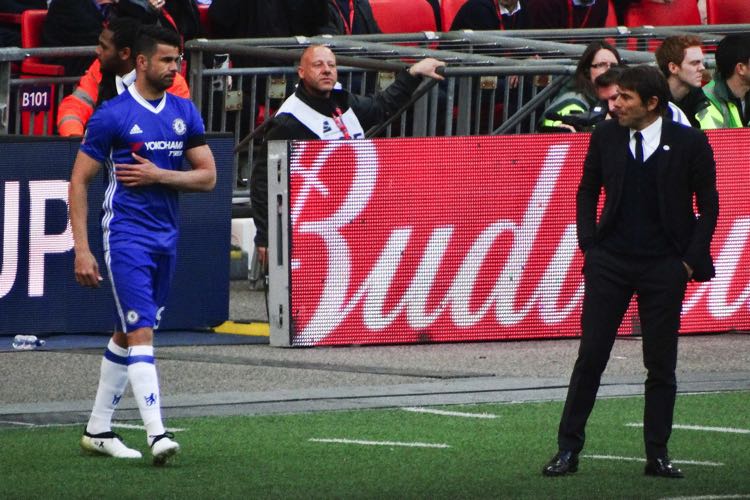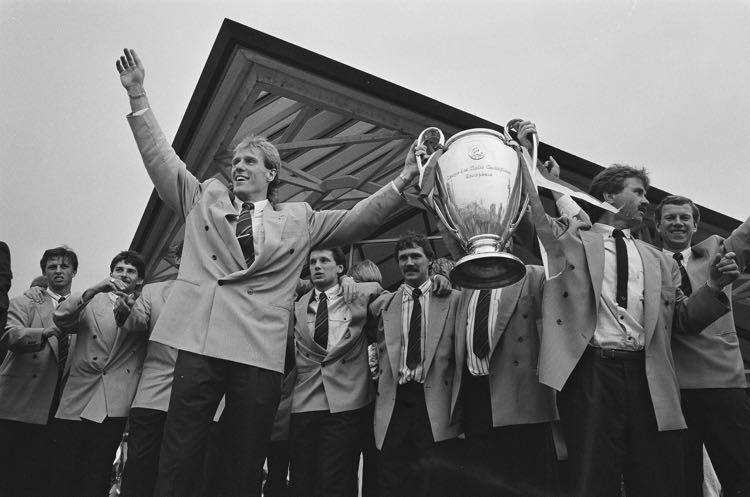Football managers are often judged by their trophies, but their win percentage is not something that should be overlooked. Even if silverware does not come thick and fast, a healthy win percentage goes a long way to keep their job safe. When this percentage begins to drop, that is when managers can find themselves in trouble. Chelsea fans know this more than most, having seen managers come and leave the club on such a regular basis over the past 15 years.
Of course, there is more to job security than win percentage. Managers can have a falling out over player recruitment, transfer budgets, personal terms, playing style etc., and these can play a major role in why a manager ends up departing. For an ambitious club like Chelsea, a lack of trophies will usually see a manager on thin ice, but if they are regularly winning matches, they will usually be given more leeway. As for which Chelsea managers have won the most often, almost all took the helm this side of the century.
All-Time Table (Ranked by Win Percentage)
Here is the table of all Chelsea managers ranked by their win percentage. Caretaker managers are not included, however, interim managers are included, which we have indicated in the below table with an asterisk (*). There are also three player-managers (Glen Hoddle, Ruud Gullit and Gianluca Vialli) among Chelsea’s former gaffers.
| Name | Nationality | Year Start | Year Left | Matches | Win % |
|---|---|---|---|---|---|
| Guus Hiddink* | Netherlands | 2009 | 2009 | 22 | 73% |
| José Mourinho | Portugal | 2004 | 2007 | 185 | 67% |
| William Lewis* | England | 1906 | 1907 | 27 | 67% |
| Avram Grant | Israel | 2007 | 2008 | 54 | 67% |
| Antonio Conte | Italy | 2016 | 2018 | 106 | 65% |
| Maurizio Sarri | Italy | 2018 | 2019 | 63 | 62% |
| Carlo Ancelotti | Italy | 2009 | 2011 | 109 | 61% |
| John Tait Robertson | Scotland | 1905 | 1906 | 54 | 61% |
| Thomas Tuchel | Germany | 2021 | 2022 | 100 | 60% |
| José Mourinho (2) | Portugal | 2013 | 2015 | 136 | 59% |
| Rafael Benítez* | Spain | 2012 | 2013 | 48 | 58% |
| Roberto Di Matteo | Italy | 2012 | 2012 | 42 | 57% |
| Luiz Felipe Scolari | Brazil | 2008 | 2009 | 36 | 56% |
| Claudio Ranieri | Italy | 2000 | 2004 | 199 | 54% |
| Gianluca Vialli | Italy | 1998 | 2000 | 143 | 53% |
| Frank Lampard | England | 2019 | 2021 | 84 | 52% |
| Ruud Gullit | Netherlands | 1996 | 1998 | 83 | 49% |
| André Villas-Boas | Portugal | 2011 | 2012 | 40 | 48% |
| Tommy Docherty | Scotland | 1961 | 1967 | 303 | 47% |
| Bobby Campbell | England | 1988 | 1991 | 165 | 47% |
| Dave Sexton | England | 1967 | 1974 | 372 | 44% |
| Geoff Hurst | England | 1979 | 1981 | 81 | 43% |
| Mauricio Pochettino | Argentina | 2023 | Current | 22 | 43% |
| John Neal | England | 1981 | 1985 | 203 | 41% |
| David Calderhead | Scotland | 1907 | 1933 | 966 | 40% |
| Graham Potter | England | 2022 | 2023 | 31 | 39% |
| John Hollins | England | 1985 | 1988 | 145 | 39% |
| David Webb | England | 1993 | 1993 | 13 | 38% |
| Eddie McCreadie | Scotland | 1975 | 1977 | 97 | 38% |
| Guus Hiddink (2)* | Netherlands | 2015 | 2016 | 27 | 37% |
| Ted Drake | England | 1952 | 1961 | 426 | 36% |
| Ian Porterfield | Scotland | 1991 | 1993 | 90 | 34% |
| Leslie Knighton | England | 1933 | 1939 | 269 | 34% |
| Glenn Hoddle | England | 1993 | 1996 | 157 | 34% |
| Billy Birrell | Scotland | 1939 | 1952 | 293 | 33% |
| Ron Suart* | England | 1974 | 1975 | 34 | 24% |
| Ken Shellito | England | 1977 | 1978 | 66 | 23% |
| Danny Blanchflower | Northern Ireland | 1978 | 1979 | 32 | 16% |
| Frank Lampard (2)* | England | 2023 | 2023 | 11 | 9% |
*Denotes interim manager
The unweighted average is 46% while the weighted average is 44.5%, so this gives you a sense of what is needed to be a solid but unspectacular all-time Chelsea manager. Expectations are much higher than they used to be mind you, so even a win rate comfortably above this would not be deemed much of a success in the modern era. Looking at José Mourinho (first stint) onwards, Chelsea have won 59% of their matches, showing just how far the bar has been raised since Roman Abramovich’s money came into the club.
It is interesting to see Hiddink top the chart and it could well be some time before someone dislodges him. He took over the role mid-way through the 2008/09 season when Chelsea fired Luiz Felipe Scolari. Hiddink was still the manager of the Russian national team at the time but was able to handle both roles simultaneously. The Dutchman only lost one game during this initial brief stint at Stamford Bridge, not bad for a man called up on very short notice to see out the rest of the season.
You may think that thanks to the so-called ‘honeymoon period’ it is easy for a short-term manager to enjoy a healthy win ratio but often such arrangements do not work out. Frank Lampard provides us with a very stark example of this as he was brought in midway through the 2022/23 season to help steady the ship. Seen as a safe pair of hands given his familiarity with the surroundings, the club legend proceeded to win just one of 11 matches.
Little Longevity at the Top

It is interesting that of the six managers with the highest win percentage, only two of them lasted more than 63 games in charge. Given that there are usually 50+ games in a season, it is unusual to see seemingly successful managers struggle to last much more than a year at the club. There are reasonable explanations for all though. In the case of William Lewis and Guss Hiddink (first stint) they were both interim managers rather than permanent appointments. The other two names that failed to last long are Avram Grant and Mauricio Sarri.
In the case of Grant, Chelsea fans were hardly outraged at his firing as he wasn’t seen as giving Chelsea anything extra. They reached the Champions League final and finished second in the Premier League but with the squad they had, this was not seen as any overachievement. There was also the issue of playstyle as Grant’s style of football could be a chore to watch at times and it focussed on grinding out results. In the 2007/08 Premier League, second-place Chelsea scored fewer goals than 11th-placed Tottenham.
As for Sarri, on paper, he oversaw quite a successful season. The Blues finished third in the league, won the Europa League and were a penalty shootout away from a League Cup win. Despite their seemingly solid league finish though, Chelsea finished 25 points behind second-place Liverpool, having failed to win 17 of their 38 matches. This is not what cost Sarri his job though, as reports seem to indicate that the Italian wanted to leave more than the club wanted him to go. By all accounts, Sarri disliked living in England and was eager to move back to Italy.
A Club with Little Patience

If you look at the other managers that also occupy the higher places on the table, you will see plenty of recent names such as Antonio Conte, Carlo Ancelotti and Thomas Tuchel, all with a 60%+ win rate. For reference, Jürgen Klopp’s record at Liverpool at the time of writing stands at 60.5% so anything above 60 is an impressive figure. All three of the originally mentioned names though got the sack from the club, rather than leaving themselves. Why? Because there had been a dip in results.
For Antonio Conte the club had gone from league champions to fifth-placed finisher. Under Ancelotti, they had gone from champions to trophyless runners-up. The dip Thomas Tuchel experienced was much smaller. Having won the Champions League months prior, the German then tasted defeat in three of Chelsea’s opening seven matches. It seems that past successes do not seem to buy managers much time at Stamford Bridge, although it is possible this may change under the new ownership. Possible but not, perhaps, likely!

